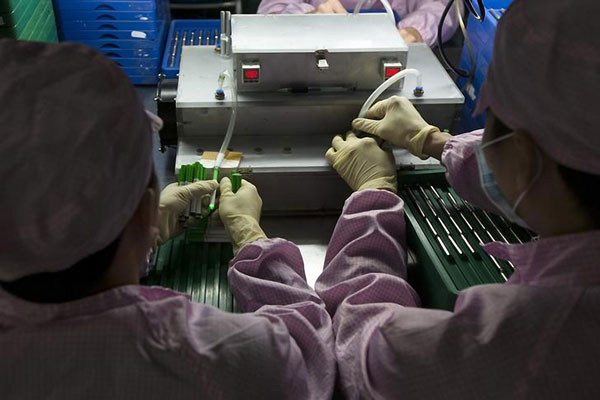Nation urged to act on WHO call to curtail e-cigarettes
By Shan Juan in Beijing and Shi Jing in Shanghai (China Daily) Updated: 2014-08-28 06:59China should heed a new report by the World Health Organization that calls for strengthening the regulation of electronic cigarettes, smoking-control experts said.
In a WHO report that is to be debated at a conference in October in Moscow, the UN health body calls for bans on indoor use, advertising/promotion and sales to minors of e-cigarettes in a market worth $3 billion worldwide.
Gan Quan, China director of the International Union Against Tuberculosis and Lung Disease, said, "Chinese stakeholders in smoking control should notice the new trend and introduce regulations over e-cigarettes in China."
|
|
Currently, China has no provisions governing the devices, which the WHO said pose a public health threat.
E-cigarettes are not as popular in China as they are in the US and Europe, but "the product is sold without restrictions, particularly online, in China," he said.
More than 70 percent of e-cigarettes and similar devices worldwide are made in China, he added.
The e-cigarette, invented in 2003, uses battery-powered cartridges to produce a flavored vapor, both with and without nicotine.
The product has become big in the West because existing smoking bans haven't yet covered the product, Gan said.
Douglas Bettcher, director of the WHO's department of noncommunicable diseases, said at a news briefing in Geneva this week that there is still a lack of long-term scientific evidence supporting the product's safety and that some fear e-cigarettes could lead to nicotine addiction and tobacco use.
"The report finds, at this point in time anyway, that there is insufficient evidence to conclude that e-cigarettes help users quit smoking," he said.
Gan agreed and added that the State monopoly China Tobacco has partnered with another Chinese company to develop a similar product of its own.
Meanwhile, the industry in China has not yet felt the impact of the WHO's report.
An Hui, a sales manager at Prius Biological Technology (Hunan) Co, said the effects of the WHO's report would not be evident immediately.
The company, established in 2005, specializes in the production and sales of electronic aerosolization liquid and exports most of its products to the United States, the United Kingdom and some other European countries.
"The e-cigarettes still take up a relatively smaller share of the market, even though the industry has been growing quite rapidly. It is still too early to tell where the WHO will take the industry with this new initiative," she said.
"As for the ban on selling e-cigarettes to teenagers, it will have little impact on manufacturers because it is already illegal to sell cigarettes to juveniles in many markets, including China. But if we look at the ban in another way, I think it will give impetus to the Chinese authorities to come up with some regulations regarding the currently unregulated Chinese e-cigarette market."
Contact the writers at shanjuan@chinadaily.com.cn and shijing@chinadaily.com.cn
- Govt encourages people to work 4.5 days a week
- Action to be taken as HIV cases among students rise
- Debate grows over reproductive rights
- Country's first bishop ordained in 3 years
- China builds Tibetan Buddhism academy in Chengdu
- Authorities require reporting of HIV infections at schools
- Typhoon Soudelor kills 14 in East China
- Police crack down on overseas gambling site
- Debate over death penalty for child traffickers goes on
- Beijing to tighten mail security for war anniversary








